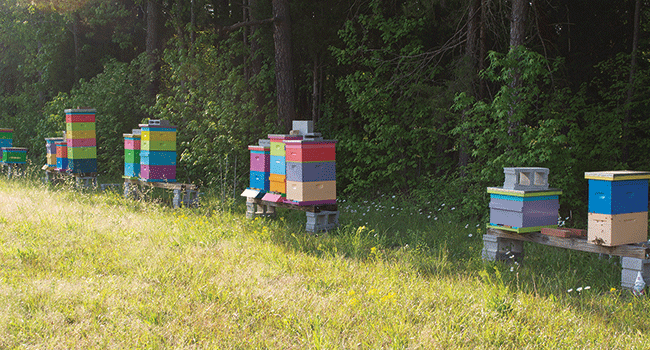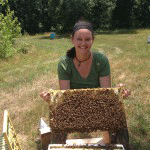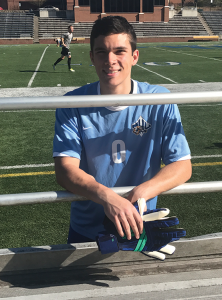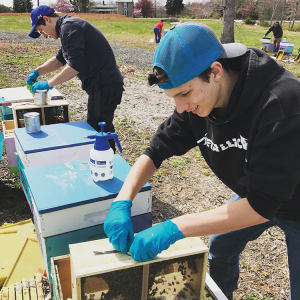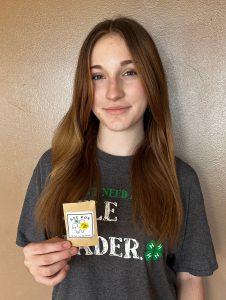By: Jessica Louque
Making A Family Business
My oldest son Henry is a senior this year. A good portion of this particular paragraph (and also maybe a couple others) will be shameless bragging, but I promise there’s a point to it (somewhere, I think). He was offered a position on the Mars Hill University soccer team as a goalkeeper – with possibility of being a starter. Mars Hill also gave him an academic scholarship for a large chunk of the tuition cost. By the time this article is published for you guys, my baby will have graduated and started his Summer job – at Louque Ag. He’ll be able to start this Summer as a Technician II since he’ll have a high school diploma.
When we started our company, part of it was to be able to do our research with more control over the costs, supplies, and overall study conduct. A larger part was to have a family business that would include our kids and give them something for their futures. Henry will be the first of the four in this crash course of running a business. As Bobby and I have scientific backgrounds, our knowledge of business is based on my experience with my real estate license and the help of our CPA and attorney. Usually plans don’t work the way you expect when they’re plans for other people, but I have at least the next seven years of Henry’s life totally worked out (in my mind) even if he doesn’t.
His university offers a Bachelor’s in Business and they have an MBA program that picks up right after graduation. I’m thinking that he can play soccer to keep him on the right path for good grades and not getting in too much trouble, and then he can go into grad school and maybe help as an assistant coach on the soccer team. Once he graduates with an MBA (and maybe his undergrad minor is biology), he’ll have a good six additional Summers of experience with us in the field and should be able to come into the company with a lot of ideas and insight on the business side.
There are a lot of different backgrounds that can come into play when you own a company, but the scientific research community is already fairly diverse. We have enough options that even though we don’t necessarily know what area our kids will choose for their focus, we’ll be able to work it into a job description. Besides the obvious area of the biology field, there’s a lot more that can go into the field work or the overall study conduct. A large portion of our research is writing. We have to write protocols that follow a specific format based on the sponsor’s preference, final reports that are any where from a couple hundred to a couple thousand pages, data summaries, abstracts and report summaries, field notes, emails to sponsors, emails to government entities – the list goes on and on. A good literary or English background could be beneficial to a report writing position.
A lot of math goes into the job as well. All of our data has to be analyzed on multiple levels, usually with a statistical program. Every single study we do has some sort of calculations for application and calibrations, as well as verifications. We have to calculate how much to spray based on how much active ingredient we’re using, if it’s in a formulated product (and if so, how much percentage is active ingredient), how many gallons per acre we need to use with our sprayer, what sort of coverage we need, what area is being sprayed, what rate should be used, etc. The sprayer has to be calibrated as well and then we calculate a pastime rate based on the application calculations and what output is needed. A degree in stats or biostats or something math-like (one of my least favorite areas) could be a lifesaver in this area, especially in all the times I can’t figure out why my stats won’t run correctly. This could also go into data entry and making sure everything is correctly digitized.
For most colony health studies, continuous assessments are made on each colony. Bobby and I often do visual assessments on colonies. These Colony Condition Assessments (CCAs) are a way of gauging the changes within a colony over a period of time. We look at a frame and estimate the percent coverage on a frame of bees front and back (in increments of 5%), then we look inside the cells and do the same estimates for coverage of eggs, open brood, capped brood, honey, nectar, pollen, and empty cells. We make a note if we see any signs of disease, if the queen is marked (or not), if we see queen cells, or if anything looks aberrant. Our frames are plastic because they hold up to the abuse a lot better than wooden frames, but also because they are much more consistent with 3,936 cells per frame side on every frame. Some of the inserts that are used in wooden frames are meant to be consistent, but easily get cut in the wrong place or lose an entire row’s worth of cells. By our base calculations, a frame that had 100% coverage of bees would have 1,394 bees per side for a total of 27,870 adult bees in a 10-frame deep super as the maximum number. Keep in mind this does not account for foragers or bees on the super walls, but simply the bees found on the frame itself.
It can be a tedious task and requires each of us to have a writer that uses a specific form to record all the numbers we call and be able to do the math to catch us if we total over 100% unintentionally (sometimes there can be more than 100%, like if the bees are so thick they beard off the frame or burr comb full of drone brood lines the bottom). Because of the intensity of these assessments, it can take over an hour for a triple or quad hive. It’s fairly difficult to complete more than 14 hives in a day per observer, depending on the size of the colony.
Just the opening, taking apart and putting together, and then closing back the hive can take a good 10 minutes sometimes. If the study is too large, we have to use digital photography for these assessments. In these cases, we usually only record numbers for the adult bees, capped brood, and pollen. In some studies, we only do brood assessments to see if there is an effect on the survival from egg to adulthood, but the process itself can be detrimental to the health of the larvae – which is why we have colonies that are not exposed to anything so we can see what stress is caused just from doing the assessment.
In these, we photograph a frame full of eggs and “mark” 300 of them on a program. We take photos of that same frame multiple times throughout the brood cycle and then see how many of those original 300 eggs survive to adulthood. A good background in photography or computers can be absolutely invaluable in these assessments just to expedite the assessment timing and make sure we don’t have photo retakes because they were photographed on incorrect settings or the program can’t analyze the photo.
Agriculture also plays a large role in what we do. We have to grow crops in different climates all over the country and be able to understand basic physiology of each crop and how it might change in various environments. Sometimes we can lose an entire sample just from a setback of a few hours, making time a valuable commodity.
If we do a large tunnel or field study, we have to have a pretty good idea of when we can expect bloom time from the planting date and germination date. Irrigation, fertilizer regimes, soil conditions, and field equipment are also expected for an agriculture background. We have to be able to have the equipment we need and know ahead of time that it will be useful. If we have a tractor or irrigation equipment, we have to know how to maintain or repair it and store it for the winter.
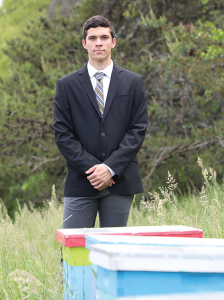 From the business perspective, we have a ton of HR/Admin paperwork on a constant basis that needs to have a lot more attention than it currently gets. Just keeping up with paying taxes, filing receipts and purchases, paying bills, and general maintenance is a full-time chore. Marketing also has a large part in our work, which could fall into a business development perspective or a design background. There’s also the general business operations. Although Bobby and I currently own and run the business, a CEO with a business degree would be quite useful in managing our company in the long run (HENRY).
From the business perspective, we have a ton of HR/Admin paperwork on a constant basis that needs to have a lot more attention than it currently gets. Just keeping up with paying taxes, filing receipts and purchases, paying bills, and general maintenance is a full-time chore. Marketing also has a large part in our work, which could fall into a business development perspective or a design background. There’s also the general business operations. Although Bobby and I currently own and run the business, a CEO with a business degree would be quite useful in managing our company in the long run (HENRY).
It would be great to have all four of our kids come back and work with us and be able to take the business to a profitable future for each of their respective families. No matter what they choose for a career path, I think I have it covered somewhere in Louque Ag, or can make it into one. For now, Henry’s the first up in the limelight to be able to be successful in college and hopefully come home and be the first Louque Ag second generation to be a permanent employee. I think he can set a good example for his siblings and maybe we’ll get them all in the business by the time George graduates college!
Jessica Louque and her husband, Bobby run Louque Agricultural Enterprises, a contract research business specializing in apicultural studies. They’re also raising kids, poultry and bees in NC.






